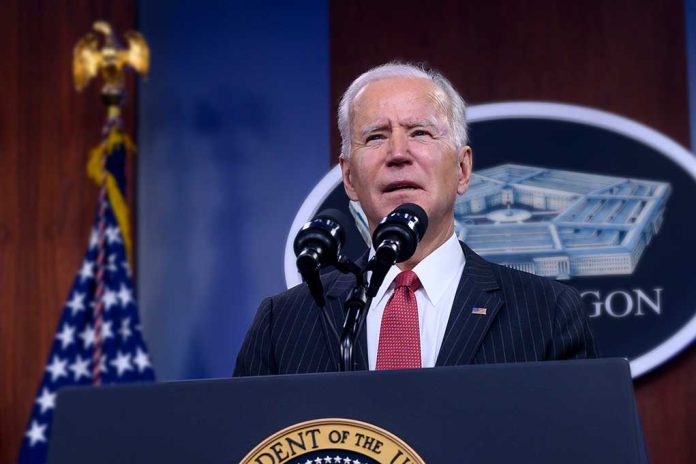
The Biden administration wrestles with the decision to support or oppose the new U.N. cybercrime treaty, which could significantly impact global internet privacy.
At a Glance
- The United Nations is implementing a new international agreement to address cybercrime.
- Critics argue the treaty could be used by authoritarian states to stifle human rights.
- The treaty aims to combat internet-related crimes, yet raises privacy concerns.
- Business groups and tech companies have expressed concerns over the treaty’s vagueness.
- The treaty needs approval from 40 nations to become law.
Background on U.N. Cybercrime Treaty
The United Nations has approved its first international cybercrime treaty to tackle crimes such as illegal access, electronic eavesdropping, and online child sex abuse. While designed to curb the unlawful exploitation of technology, the treaty faces heavy criticism for potentially enabling governments to infringe on human rights. Initiated by Russia, the treaty incorporates language that critics find oppressive.
The Biden administration initially opposed this treaty but later participated in the negotiations. Despite attempts to balance law enforcement authority with human rights concerns, the final draft has yet to satisfy critics. The treaty’s requirements for collecting traffic data and disclosing private encryption keys have drawn skepticism from watchdog groups like the Electronic Frontier Foundation and Human Rights Watch.
Criticism and Concerns
The proposed treaty could undermine global human rights, including freedom of speech and expression. Business groups and technology companies, including Amazon and Microsoft, have voiced worries about the treaty’s vagueness and potential for abuse. Governments with poor human rights records could exploit this agreement to justify increased surveillance and censorship.
“I think it’s a blank check for abuse because it has a very broad scope for domestic and cross-border spying and surveillance and a lack of robust checks and balances,” – Katitza Rodríguez, the policy director for global privacy at the Electronic Frontier Foundation
The U.N. Convention Against Cybercrime, aimed at enhancing global law enforcement cooperation, also facilitates government access to private data. Democratic nations must weigh these benefits against the risks of enabling authoritarian states to misuse the treaty for privacy violations. The document defers to domestic laws for human rights safeguards, potentially enabling abuses in countries with poor human rights records.
Should Biden admin reconsider the draft Convention Against Cybercrime?@pielemeier: “That treaty, the result of a years-long Russia-led effort, would put the privacy, data, and safety of dissidents, journalists, and activists around the world at risk.”https://t.co/S6KyBc0Jqu
— Just Security (@just_security) September 23, 2024
Impact on International Relations and Human Rights
This treaty was promoted by nearly 200 nations in a broad consensus to combat the malicious use of computer technology. However, the potential for expanded invasive electronic surveillance is a significant sticking point. Critics warn that the treaty may lead to enhanced government overreach, infringing on dissidents, journalists, and activists.
“The U.N. cybercrime convention is a blank check for surveillance abuses,” says Katitza Rodriguez, the Electronic Frontier Foundation’s (EFF’s) policy director for global privacy. “It can and will be wielded as a tool for systemic rights violations.”
The Biden administration needs to grapple with these international and domestic concerns, especially considering the increasing demands for user data and content censorship by national governments. The administration emphasizes the need to follow international law while protecting human rights. As the vote approaches, the balance between cybersecurity and individual freedoms hangs in the balance.
Sources
1. The UN is moving to fight cybercrime but privacy groups say human rights will be violated
2. New U.N. Cybercrime Treaty Could Threaten Human Rights









